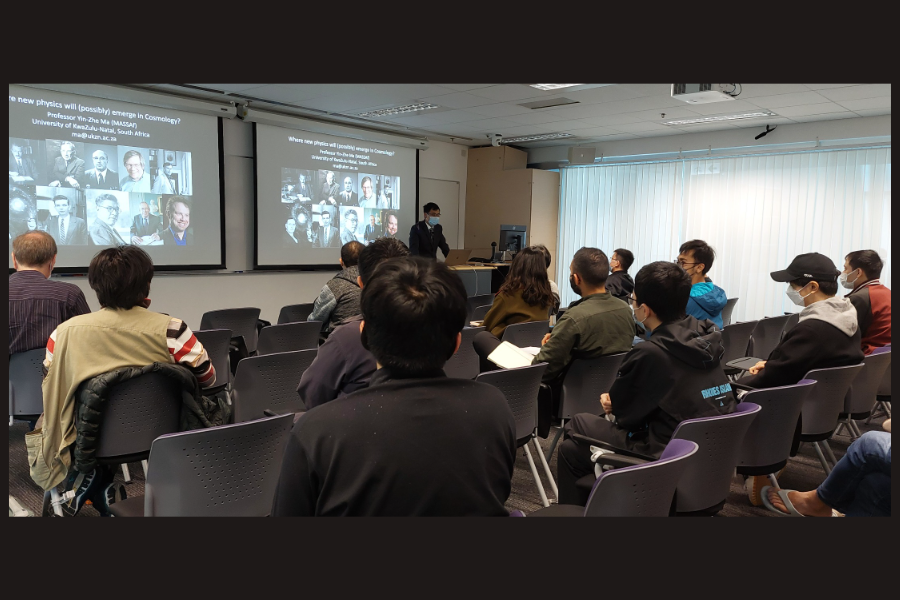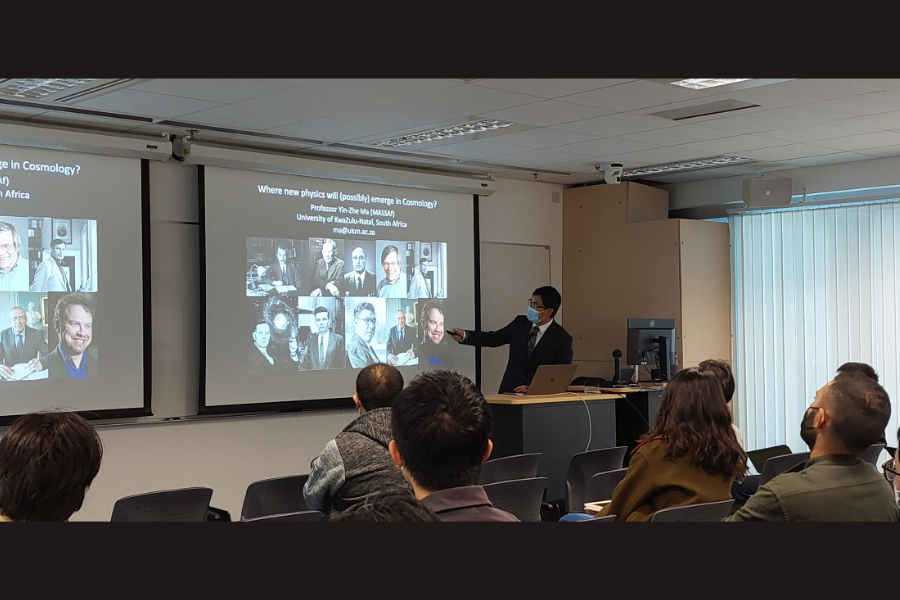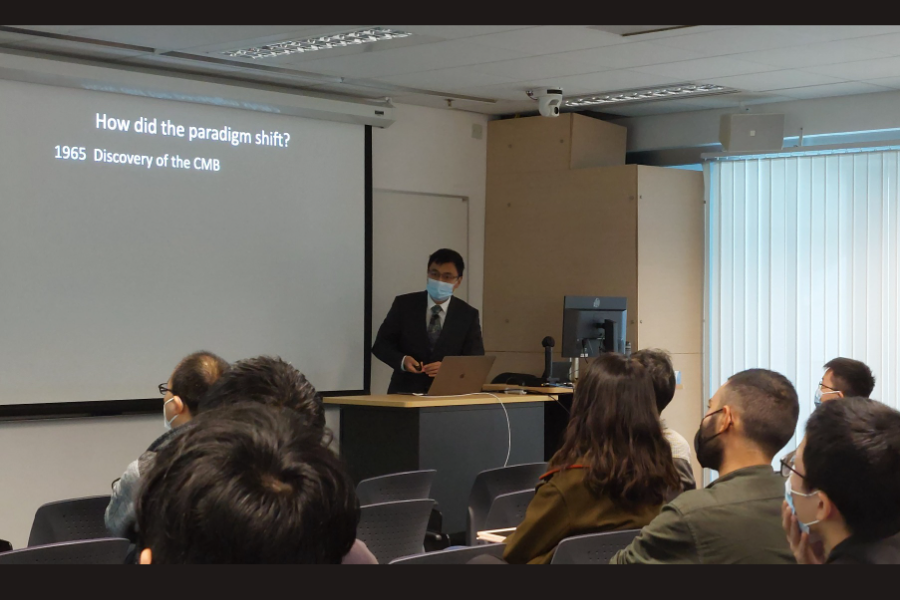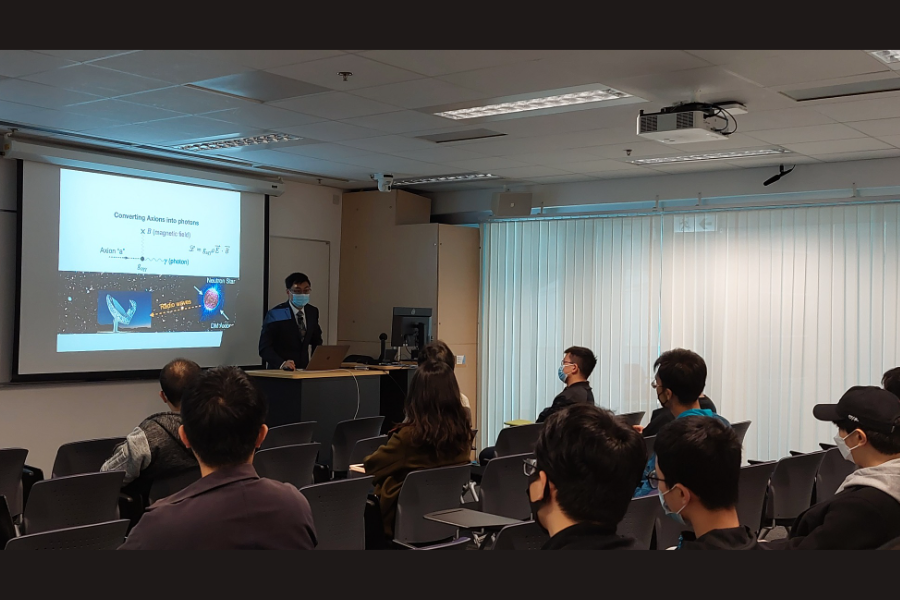Where New Physics will (Possibly) Emerge in Cosmology?
Abstract
The last two decades saw the fast development of precision cosmology with the advances of modern telescopes. The speaker will give a brief overview of the modern cosmology and highlight its phenomenal successes as well as distinctive challenges. He will explain why and how the measurements of cosmic microwave background radiation and the relics of the primordial elements. He will also talk about how the galaxy distribution on large scales can improve our understanding of the fundamental building blocks of the nature. Finally Prof. Ma will discuss its distinctive challenges and the observational frontiers for high-energy physics, highlighting where the new physics may possibly emerge.
About the Speaker
Prof. MA Yin-zhe obtained his bachelor's degree in Physics from Nanjing University and master's degree from the Institute of Theoretical Physics at the Chinese Academy of Sciences under the supervision of Prof. CAI Rong-Gen before pursuing his PhD in Astronomy at the University of Cambridge under Prof. George EFSTATHIOU FRS. He conducted CITA National Fellowship at the University of British Columbia, Canada and became a research associate at the University of Manchester before moving to the University of KwaZulu-Natal, South Africa, in which he developed his career from a senior lecturer (2015), an associate professor (2018) and currently as a full professor (2021-).
Prof. Ma was elected as a member of Academy of Science of South Africa in 2022. He chairs the NAOC-UKZN Computational Astrophysics Centre and the Chinese-South African Forum of Astronomy. He is also an adjunct professor at Purple Mountain Observatory and National Astronomical Observatory China during 2017-2021.
Prof. Ma’s research focuses on observational and theoretical cosmology aimed at understanding the fundamental laws of the Universe and uncovering the nature of dark energy and dark matter. He is currently a core member of the Square Kilometer Array (SKA) Science Working group, the Planck science team, Hydrogen Epoch Reionization Array (HERA), and the CMB Stage-4 experiment and LSST (Vera C. Rubin Observatory). With the Planck science team, he was awarded the 2018 “Gruber Cosmology Prize” by the IAU. He has published over 100 papers, with total citations exceeding 20000, h-index 43. He was awarded the NSFC Oversea Scholar grant and several South Africa National Research Foundation grants.
About the Program
For more information, please refer to the program website at http://iasprogram.ust.hk/particle_theory.






